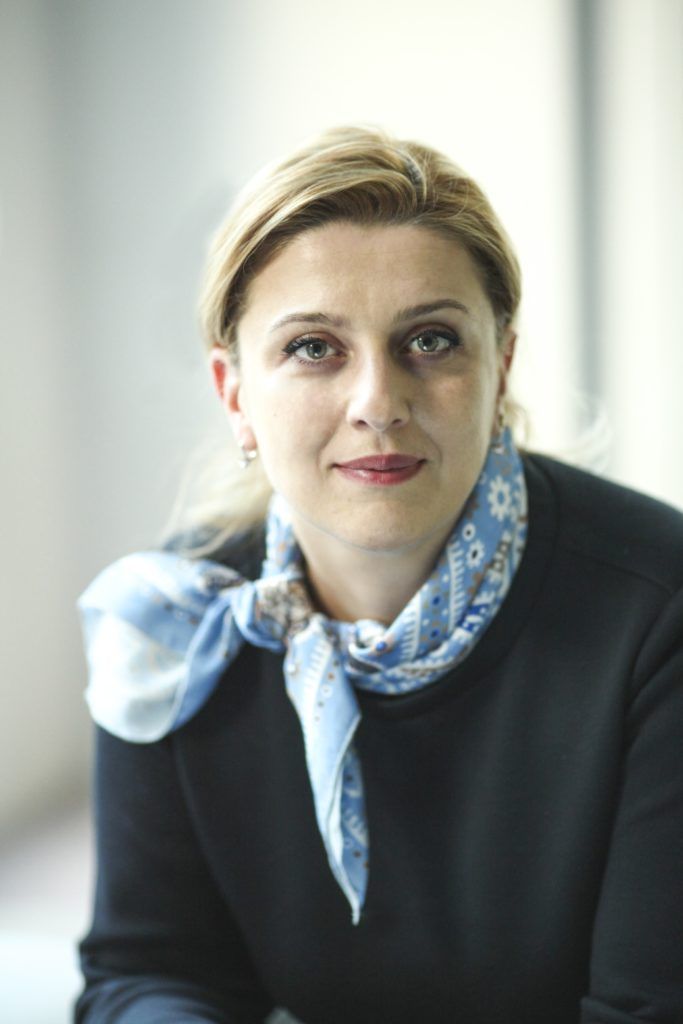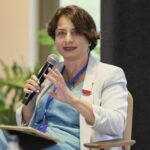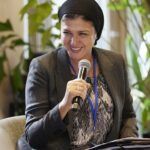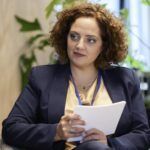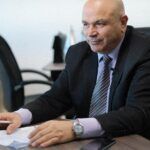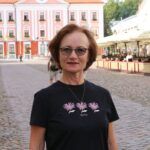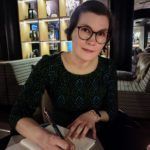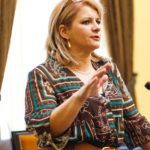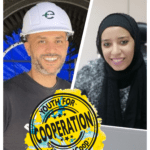Voices from the field
Nana Kashakashvili
"We connect buyers and sellers to sustain agrobusiness"
I work at the Georgian Institute of Public Affairs in Tbilisi, which was founded in 1994. Since then, the institute has been playing an important role in developing the field of Public Administration in Georgia alongside good governance at the central, municipal and local levels. In particular, I am in charge of the Department of Rural Development and Vocational Education. The aim of the Department is to introduce modern agricultural and rural development practices. It is also actively involved in developing and implementing vocational education programmes as well as supports other vocational schools to raise their capacities in all regions of the country.
In 2018, our institute has signed a contract within the ENI CBC Black Sea Basin 2014-2020 programme for the project AgroNet. The project aims to strengthen trade opportunities and modernisation in the agricultural and related sectors in Georgia, Bulgaria and Romania. For this, we will pilot modern trading opportunities in agriculture by creating an innovative online platform.
When it comes to Agriculture, the operational programme of the Black Sea basin highlights that the sector is a major one for most of the Black Sea countries economies. In particular, it provides over 45% of employment in Georgia. Agricultural products such as fruits and nuts, vegetables, cereals, meat, dairy products, fish and alcohol are amongst the main goods traded between these countries.
In the past years, we came to the conclusion that the Black Sea Basin countries were missing an organised system for the trade of agricultural goods and services. Yet some products of our countries have unique characteristics and specific advantages for exportation. For example, Georgian wines are unique. There should then be an emerging demand for certain products and services. Instead, we noticed a poor interconnection concerning the agriculture sector of the Black Sea countries, a lack of market information as well as a weak level of knowledge about trade and standards related issues. Altogether, this ultimately negatively affects the development of agribusiness in the region.
With this project, exporters and importers of agricultural products and services, including technology providers, will be connected and much better informed. It is important to develop and introduce regional partner matching mechanisms in order to connect potential buyers and sellers, including value chain actors such as distributors and processors. The system will also provide information regarding the trade-related requirements for specific products, including standards, regulations and customs control.
The AgroNet project requires joint efforts and actions, as well as the involvement of actors from each of the three participating countries. Enhancing cross border contacts among partners is crucial, as this will develop, create and feed the information supply concerning a variety of agribusiness export-import related issues.
The project intends to build an online space where all of the information will be accessible and free, with information directly contributed and uploaded by users. For citizens, there will be an obvious benefit. The platform will improve agricultural practices for farmers, agricultural cooperatives, wholesalers, exporters, retailers and processors, warehouses and other enterprises which are in line with increasing national, regional and global food safety international standards. Cross-border trading opportunities will also be increased with such an access to agriculture and trade-related information.
“I’m Georgian, and therefore I am European” are the words of Georgian ex-prime minister Zurab Zhvania while speaking in front of the Council of Europe in 1999. I fully agree with this statement and believe that Georgia is part of the family of European nations. Georgian universities are some of the oldest in Europe, further attesting to our historical focus on the importance of education. Georgia’s European aspirations are further confirmed by our concerted efforts to join the European Union and other structures. I am very proud to be a part of these efforts. I also believe in the added value of working together around the Black Sea Basin to address common challenges and find common solutions. I have been working on cross border cooperation for a couple of years now. Georgia is a natural hub for cross border work on a myriad of levels given our central position in the South Caucasus.
Nana holds a Master’s degree in International Politics from the Georgian Institute of Public Affairs and a Master’s degree in English Literature from Tbilisi State University. Since 2013, she has been the Head of the Georgian Rural Development and Vocational Education Department (DRDVE) at the Georgian Institute of Public Affairs, having previously worked at the Institute in other capacities including Georgia’s National Animal Health Programme, different rural development projects, war-affected and other vulnerable community projects. Her academic and professional background is quite varied and include teaching and coaching in the English language at GIPA, working for various domestic and international organizations. She was also involved in election observation missions at home and abroad.
